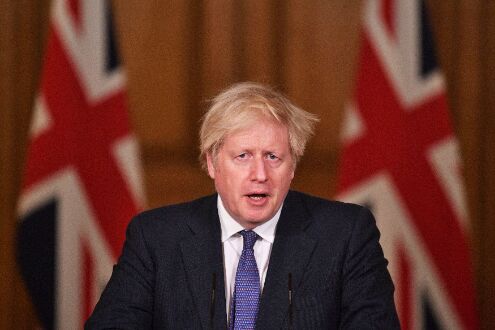Lasting impact

Could Brexit be the straw that finally broke the back of the camel (UK)? This is one of the many major concerns that have been left unanswered even after the Boris Johnson government declared victory in its battle to pull the UK from the EU. This is not a new concern and was actually floated early in the Brexit campaign as a sort of worst-case scenario. Now, there is some indication that the wheels towards the breakup of the UK may well be in motion.
Not too long after Brexit was formalised, the Scottish National Party issued a statement demanding that the UK Government pay Scotland billions of pounds in restitution over the growing fallout of Brexit for the Scottish economy. It must be noted that Scotland, like Northern Ireland, actually voted to stay in the EU while Britain and Wales elected to leave. It is therefore not entirely surprising that talks of separation from the UK have been floated in both Scotland and Northern Ireland as tensions over Brexit grow. And there are fair indications that this is only the beginning as experts have warned that the full impact of Brexit will take years to show itself. While Northern Ireland has yet to make any overt indications of separating from the UK, the movement towards the same is a lot more obvious for Scotland. Recently, the Scottish National Party has once again raised the possibility of a new referendum on Scottish independence. The last referendum in 2014 failed to gather the necessary majority but it is clear that a combination of Brexit tensions and UK's COVID-19 response may provide the necessary impetus to tip the vote over to the other side. Poll after poll shows that the Scottish people perceive that Johnson has done a terrible job leading the union through the pandemic whereas the Sturgeon government is perceived to have done a much better job. There is also growing perception that Johnson's persistent push towards Brexit regardless of the costs or the will of dissenters is a sign that he does not, in fact, stand representing the will of the union but rather that of Britain only. Therefore, the SNP has indicated that it will table the referendum after it wins the majority in the parliamentary elections in May, a majority that many commentators say it will achieve. The UK naturally will not stand silent in this regard. Johnson and his party have already stated that the 2014 vote was a once in a generation opportunity that the union of UK must remain intact for the sake of all the constituents involved. But if the SNP does in fact win the required mandate and bring up the issue of the referendum, the UK Government may attempt to block the issue at the risk of appearing anti-democratic.
The wider concern is that the exit of Scotland may prompt a total breakdown of the UK. Northern Ireland for one may be left in the awkward spot of deciding to remain with the fragmented union or give in to the pressure of seeking a union with Ireland. At the very least, even if Brexit does not start the fragmentation of the UK, it will likely lead to some significant change in how the union operates. It may lead to further devolution of powers form the government in London, a process that actually started in the 1990s.
Either way, there is little indication that Johnson's Union Policy Implementation Committee will be able to manage the demands of separation without preparing suitable concessions. A rework is likely in order to negotiate the shape of the UK in the modern-day. Pushing forward with business as usual will only delay this issue but it cannot suppress it. Even if somehow Scotland give up its demand in the short term, it is entirely likely that Northern Ireland's new post-Brexit arrangement with the EU could eventually foment the desire of its people to unify Ireland, join the EU and leave the UK for good.



